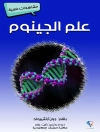Cyanobacteria are the extraordinary microbes that are believed to have started life on Earth. It’s been billions of years since they colonized this planet. Now, the question arises, what has made them so successful? The answer to this question lies in their remarkable potential to survive unfavorable environments, their substantial ability to fix the atmospheric carbon through photosynthesis, and their amazing secondary metabolites having antioxidant, osmo-protectants, and stress-tolerance abilities. Research on cyanobacteria has shown that these secondary metabolites and the substantial photosynthetic rates of cyanobacteria can be exploited for environmental, industrial, nutraceutical, and pharmaceutical applications.
This book “
Pharmaceutical and Nutraceutical Potential of Cyanobacteria” is a collection of 14 book chapters that have covered almost all aspects related to the opportunities, challenges, and potential applications whileemploying cyanobacteria as feedstock for various industrial and environmental applications with a special focus on pharmaceutical and nutraceutical applications. Some sections have also covered the enhanced biosynthesis, extraction, storage, and marketing of the cyanobacterial bioactive compounds (phycobilins, carotenoids, fatty acids, amino acids), and applications of cyanobacteria as food/feed of the future. We believe that this book will provide substantial learning opportunities to the readers including graduate students, academicians, phycologists, policymakers, environmental entrepreneurs, and industrialists.
This book could be included in SDG 12 publications.
Содержание
Chapter 1. Cyanobacterial Cell Factories; Insight into Their Pharmaceutical and Nutraceutical Properties.- Chapter 2. Cyanobacterial Pigments: Pharmaceutical and Nutraceutical Applications.- Chapter 3. Spirulina as a Food of the Future.- Chapter 4. Potential of Cyanobacterial Biomass as an Animal Feed.- Chapter 5. Cost-Effective Cultivation of Cyanobacteria for Biotechnological Applications.- Chapter 6. Storage, Processing, and Stability of Phycobilins.- Chapter 7. Non-Conventional and Novel Strategies to Produce Spirulina Biomass.- Chapter 8. Cyanobacteria-based Green Synthesis of Nanoparticles for Industrial Applications.- Chapter 9. Cyanobacterial Bioactive Compounds; Synthesis, Extraction, and Applications.- Chapter 10. Threats, Challenges, and Issues of Large-Scale Cyanobacterial Cultivation.- Chapter 11. Cyanobacterial Exopolysaccharides; Extraction, Processing and Applications.- Chapter 12. Innovations in the Cyanobacteria-Based Biorefineries for Biopharmaceutical Industries.- Chapter 13. Cyanobacteria Biotechnology: Challenges and Prospects.- Chapter 14. Global Research Trends in Cyanobacteria; Bioproducts and Culture Collection.
Об авторе
Prof. Dr. Muhammad Aamer Mehmood earned his Ph.D. from Quaid-i-Azam University, Islamabad, Pakistan in 2010. He has teaching & research experience spanning more than 12 years as a regular faculty member at Government College University Faisalabad (GCUF), Pakistan. Besides, he has research experience at the Third Institute of Oceanography (Xiamen, China), Sichuan University of Science & Engineering (Zigong, China), & Shanghai Jiaotong University (Shanghai, China).
Currently, he is working as a Professor and Lead-PI of the Bio Eco Tech Research Cluster at the Department of Bioinformatics and Biotechnology. He has been working on process optimization for the sustainable utilization of bio-resources with a special focus on microalgae and cyanobacteria, wastewater recycling, and biomass-to-bioenergy conversion through pyrolysis and bioprocessing since 2010. His research projects involve bioprospecting and characterization of microalgae/cyanobacteria in a multiproduct biorefinery paradigm to produce bioproducts (biofertilizers, industrial enzymes, biopolymers) while keeping the Energy-Water Environment nexus sustainable.
He has received research funding from the Higher Education Commission, in Pakistan, the International Foundation for Science in Sweden, The World Academy of Sciences in Italy, and the National Natural Science Foundation of China. He has authored/co-authored hundred (100) research & review articles (with ~563 Impact Factor) in peer-reviewed journals and eleven (11) book chapters. For his contributions to the field, He was awarded the Research Productivity Award (one of the most prestigious academic awards in Pakistan) for the years 2011, 2012, and 2014 by Pakistan Council for Science & Technology, and Young Leaders Award 2017 by Positive Pakistan. Moreover, in 2019, he was honored with the highest province-level academic title “The Distinguished Expert” by the Sichuan government, China.
He serves as Editor/Guest Editor at several reputed journals including Protein & Peptide Letters, Biomass Conversion and Biorefinery, PLOS ONE, Peer J, BMC Biotechnology, Environmental and Toxicology Management, Asian Journal of Agriculture and Biology. He is an Executive Board Member of the Asian Federation of Biotechnology and Secretary-General of the Asian Federation of Biotechnology (Pakistan Chapter).
Prof. Dr. Pradeep Verma completed his Ph.D. from Sardar Patel University, Gujarat, India, in 2002. In the same year, he was selected as UNESCO fellow and joined Czech Academy of Sciences, Prague, Czech Republic. He later moved to Charles University, Prague, to work as a Post-Doctoral Fellow. In 2004, he joined as a visiting scientist at UFZ Centre for Environmental Research, Halle, Germany. He was awarded a DFG fellowship which provided him another opportunity to work as a Post- Doctoral Fellow at Gottingen University, Germany. He moved to India in 2007 where he joined Reliance Life Sciences, Mumbai, and worked extensively on biobutanol production which attributed a few patents to his name. Later he was awarded with JSPS Post-Doctoral Fellowship Programme and joined Laboratory of Biomass Conversion, Research Institute of Sustainable Humanosphere (RISH), Kyoto University, Japan. He is also a recipient of various prestigious awards such as Ron-Cockcroft award by Swedish society, UNESCO Fellow ASCR Prague. Prof. Verma began his independent academic career in 2009 as a Reader and Founder Head at the Department of Microbiology at Assam University. In 2011, he moved to the Department of Biotechnology at Guru Ghasidas Vishwavidyalaya (a Central University), Bilaspur, and served as an Associate professor till 2013. He is currently working as Professor (former Head and Dean, School of Life Sciences) at Department of Microbiology, CURAJ. He is a member of various national and international societies/academies. He has completed two collaborated projects worth 150 million INR in microbial diversity and bioenergy.
Prof. Verma is a Group leader of the Bioprocess and Bioenergy laboratory at the Department of Microbiology, School of Life Sciences, CURAJ. His area of expertise involves Microbial Diversity, Bioremediation, Bioprocess Development, Lignocellulosic and Algal Biomass based Biorefinery. He also holds 12 International patents in the field of microwave-assisted biomass pretreatment and bio-butanol production. He has more than 62 research articles in peer-reviewed international journals and contributed to several book chapters (28 published; 15 in press) in different edited books. He has also edited 3 books in international publishers such as Springer and Elsevier. He is a Guest editor to several journals such as Biomass Conversion and Biorefinery (Springer), Frontier in Nanotechnology (Frontiers), and International Journal of Environmental Research and Public Health (MDPI). He is also an editorial board member for the Journal Current Nanomedicine (Bentham Sciences). He is acting as a reviewer for more than 40 journals in different publication houses such as Springer, Elsevier, RSC, ACS, Nature, Frontiers, MDPI, etc.
Dr. Maulin P. Shah has been an active researcher and scientific writer in his field for over 20 years. He earned a B.Sc. degree (1999) in Microbiology from Gujarat University, Godhra (Gujarat), India. He also earned his Ph.D. degree (2005) in Environmental Microbiology from Sardar Patel University, Vallabh Vidyanagar (Gujarat), India. He is Chief Scientist & Head of the Industrial Wastewater Research Lab, Division of Applied and Environmental Microbiology Lab at Enviro Technology Ltd., Ankleshwar, Gujarat, India. His work focuses on the impact of industrial pollution on the microbial diversity of wastewater, and genetically engineering high-impact microbes for the degradation of hazardous materials. His research interests include Biological Wastewater Treatment, Environmental Microbiology, Biodegradation, Bioremediation, & Phytoremediation of Environmental Pollutants from Industrial Wastewaters. Maulin P. Shah (male), currently his major work involves isolation, screening, identification, and Genetic Engineering of high impact of Microbes for the degradation of hazardous materials. He has published more than 250 research papers in national and international journals of repute on various aspects of microbial biodegradation and bioremediation of environmental pollutants. He is the editor of more than 50 books of international repute (Elsevier, Springer, RSC, and CRC Press). He is an active editorial board member in top-rated journals. He is on the Advisory Board of CLEAN—Soil, Air, Water (Wiley); editor of Current Pollution Reports (Springer Nature), Environmental Technology Innovation (Elsevier), Current Microbiology (Springer Nature), Journal of Biotechnology & Biotechnological Equipment (Taylor & Francis), Ecotoxicology (Microbial Ecotoxicology) (Springer Nature), and Current Microbiology (Springer Nature); and associate editor of Geo Microbiology (Taylor & Francis) and Applied Water Science (Springer Nature).
Prof. Dr. Michael J. Betenbaugh earned his BS in Chemical Engineering from the University of Virginia in 1981, and his Ph D in Chemical Engineering from the University of Delaware in 1988. He is a Professor of Chemical and Biomolecular Engineering and center director of the Advanced Mammalian Biomanufacturing Innovation Center (AMBIC). AMBIC is an Industry-University Cooperative Research Center (IUCRC) funded by NSF and over 30 industrial and governmental sponsors, including major biopharmaceutical manufacturers, contract manufacturers, and suppliers. He is also the lead PI of the International Biomanufacturing Network (IBio Ne.org). Dr. Betenbaugh is known for integrating systems biology with cellular, metabolic, and biochemical engineering for eukaryotic biotechnology applications. He is one of the original pioneers of eukaryotic metabolic engineering and has made multiple landmark contributions in improving the efficiency and effectiveness of mammalian and insect production hosts, in fundamental discoveries in glycobiology, in applying systems biology to understand mammalian cells in biotechnology and biomanufacturing, and in advancing knowledge about sustainable algal bioprocessing for biofuels and other products. He also led the JHU initiative to be one of the original academic members of the National Institute for Innovation in Manufacturing Biopharmaceuticals (NIIMBL), which uses federal and industry co-funding to fine-tune existing biopharmaceutical manufacturing techniques.
His most significant achievements include the application of chaperones and foldases to increase protein folding and product yields from insect cells; glycoengineering in insect and mammalian hosts to produce sialylated high-value glycoproteins; anti-apoptosis engineering to increase mammalian survival and productivity; genomics, proteomics, glycomics, and systems biology models of mammalian hosts; micro RNA analysis and genome engineering in mammalian cells; and advancing sustainable microalgae processing. His application of the latest genomics, analytics, and mathematical techniques has facilitated the study of intracellular pathways and enabled users to identify and overcome processing limitations in multiple eukaryotic systems including insect, mammalian, and microalgae. He has received the D.I.C. Wang Award for Excellence in Biochemical Engineering (2017), the Marvin J. Johnson (2015) and James Van Lanen awards from the American Chemical Society’s Division of Biochemical Technology, and the Cell Culture Engineering Award (2010). He served as a visiting scientist at the Kyoto Institute of Technology in 2001, visiting professor at Denmark Technical University (DTU) in 2023, and is an elected fellow of the American Institute for Medical and Biological Engineering (AIMBE).












